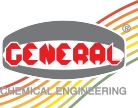acrylic, polyurethane sealant, epoxy sealants, Stone adhesives, abrasives, waxes, Sealers and impregnators


acrylic, polyurethane sealant, epoxy sealants, Stone adhesives, abrasives, waxes, Sealers and impregnators
RTN 25 AZ EPOXY ADHESIVE FOR PUTTYING STONE SLABS Liquid dual-compound epoxy adhesive, solvent free and perfectly transparent (GARDNER colour max. 5), with low viscosity and self-levelling for strengthening and puttying stone slabs. Very stable with respect to atmospheric agents and UltraViolet rays and suitable for exteriors.
USE For surfacing, strengthening and resin-bonding marble, granite, natural and artificial stones.
PREPARING THE SURFACE The pieces to be treated must be porous, clean and dry, as well as free of dust, oils and foreign matters. COMPOSITION COMPONENT A: Bisphenol A epoxy resin with reactive diluent/thinner COMPONENT B: low-viscosity cycloaliphatic polyamine
MIXING RATIO (IN WEIGHT): COMPONENT A : COMPONENT B = 100 : 25 (i.e. 100 grams comp. A mixed with 25 grams comp. B) Epoxy adhesives require the exact resin/catalyst mixing ratio (in weight) Active substance content % 100 Density at 25°C (77°F) gr/cm3 1.09 Flash point °C / °F 97 / 206 Time of use after mixing (test of 200 gr. at 25°C[77°F]) minutes 10-15 Air drying time (RH 50% 25°C[77°F]): High thicknesses 5 mm Low thicknesses 100 µm hours hours 1-2 3-4 Use/application temperature °C / °F >8 / >41 Mineral fillers absent
IMPORTANT: The reaction of catalysis (hardening) requires temperatures not lower than 8°C/10°C (41°F/50°F) and during the application the temperature of the material must be not lower than 8°C/10°C APPLICATION: by knife or by spreading
THICKNESS: suggested between 0,3 to 1 mm. CONSUMPTION: 250-800 gr/m2 depending on material porosity TECHNICAL DATA SHEET HARDENING The speed of polymerisation/hardening increases with the increase of the temperature; anyway, when applying the product, the temperature must not be lower than 8°C-10°C (46°F-50°F). The product hardens in 5-6 hours and can be worked (grinded, polished etc.) after 10-12 hours. The catalysis is fully completed after 24-36 hours. SHRINKAGE ON HARDENING 0.25% CHEMICAL RESISTANCE (Variations in % weight on diskettes after 21 days soaking at 25°C [77°F]). Distilled water 1.6 Sodium hydroxide10% 1.2 Acetic acid 10% 8.3 Hydrochloric acid 10% 2.0 Sulphuric acid 10% 3.3 Methylisobutylketone 4.8 Xylene 0.9 Ethanol 96% 11.8 STABILITY The product must be kept in closed and sealed containers. If the containers are not properly closed, component B can absorb humidity and carbon dioxide which, during hardening, could produce air bubbles and opalescence. It is also suggested to store the products at temperatures above 10- 15°C (50-59°F) or anyway condition the product to such temperatures before the use to prevent any increase in viscosity.
SAFETY MEASURES see Material Safety Data Sheet MECHANICAL SPECIFICATION (after 10 days’ hardening at 25°C [77°F]) FLEXURE maximum load N/mm2 98 FLEXURE modulus of elasticity N/mm2 3650 COMPRESSION attrition load N/mm2 112 COMPRESSION modulus of elasticity N/mm2 2920 TRACTION breaking load N/mm2 51
TRACTION breaking extension % 1.2 HDT °C (°F) 87 (188) HARDNESS Shore D15 84
REMARKS: Epoxy adhesive compounds have excellent setting characteristics even on slightly damp surfaces. The low shrinkage (0.1 - 0.5%) causes only limited stress both during and after hardening, thereby favouring greater gluing and material stability. Once hardened they are totally resistant to frost and water so they are also ideal for exterior use. The prolonged direct sunlight action can however causes the resin to turn yellow. Thanks to the great adhesive flexibility, heterogeneous materials such as concrete, steel, wood, many plastic materials, natural and artificial stones can be glued together, including in alternate layers